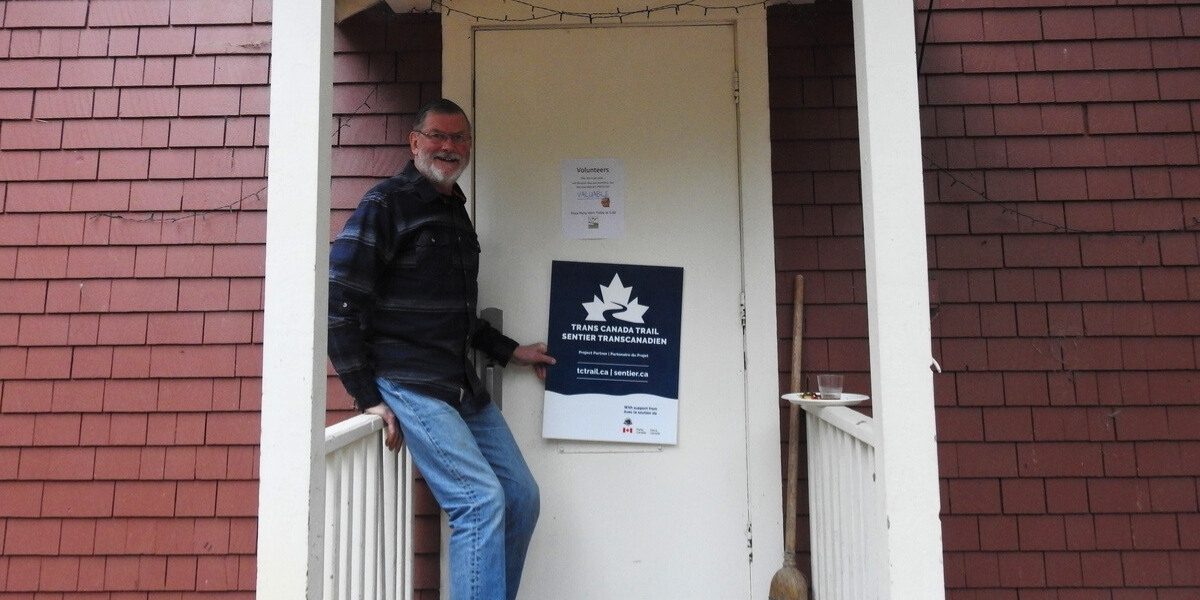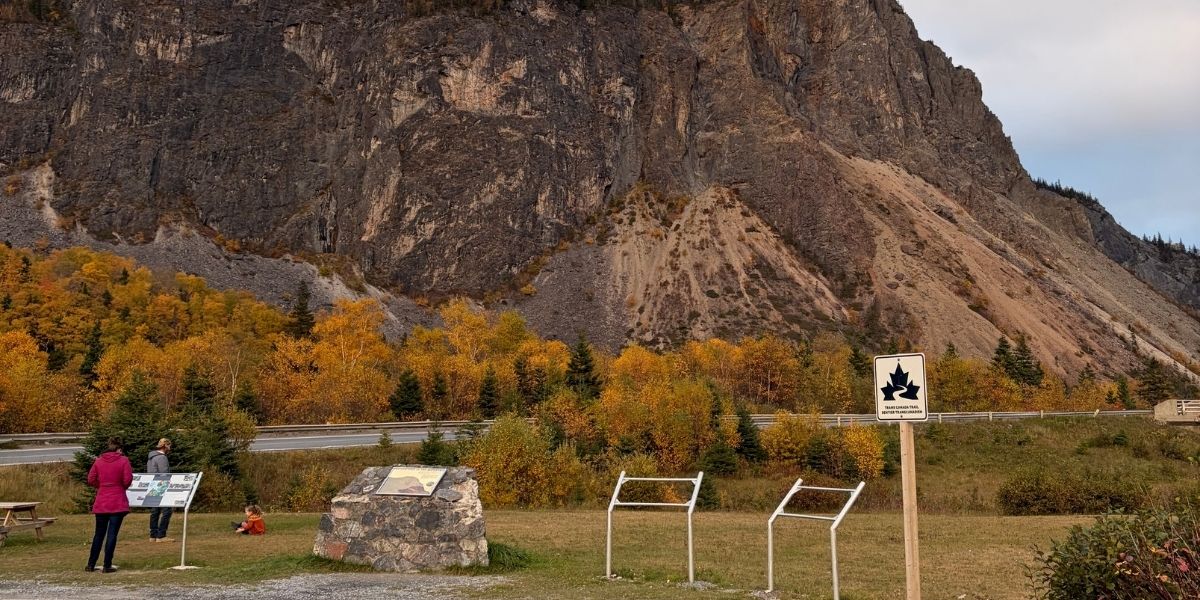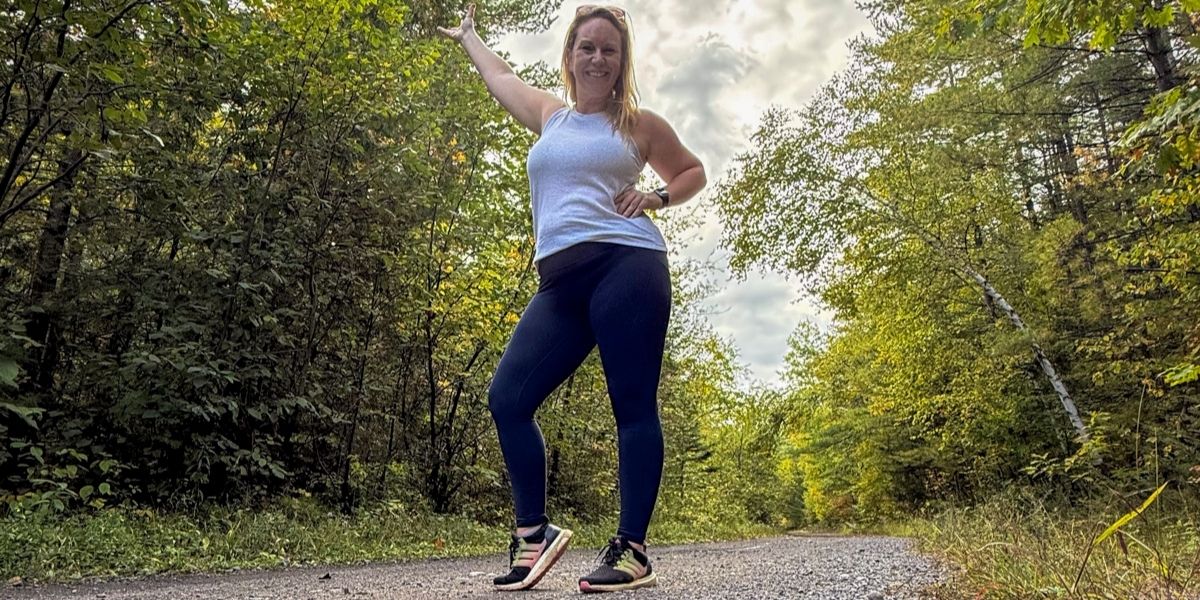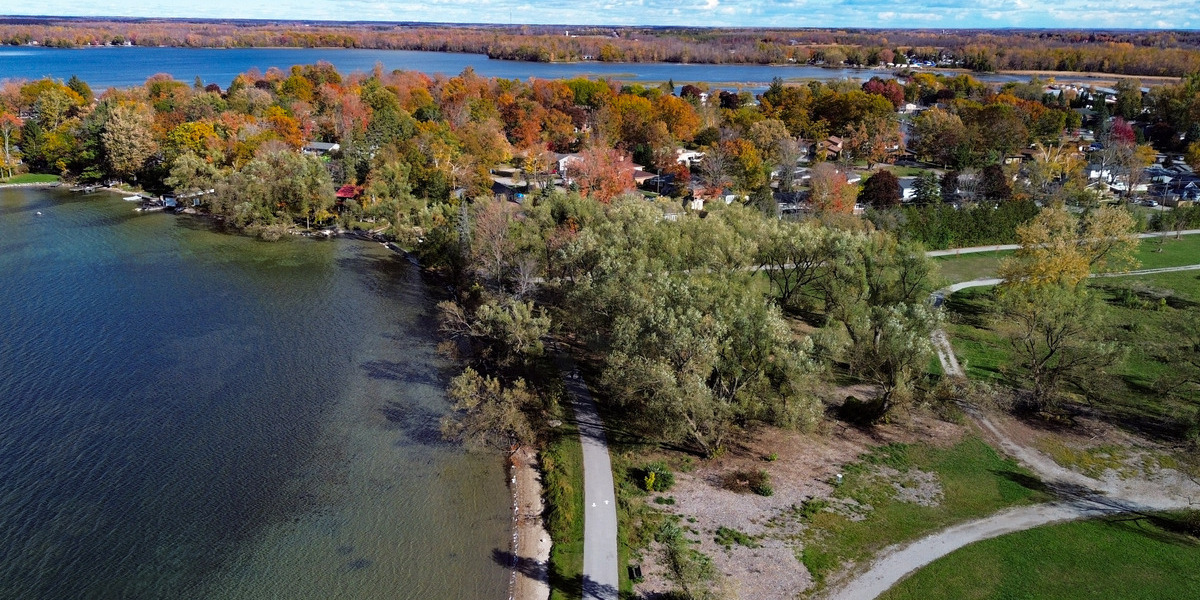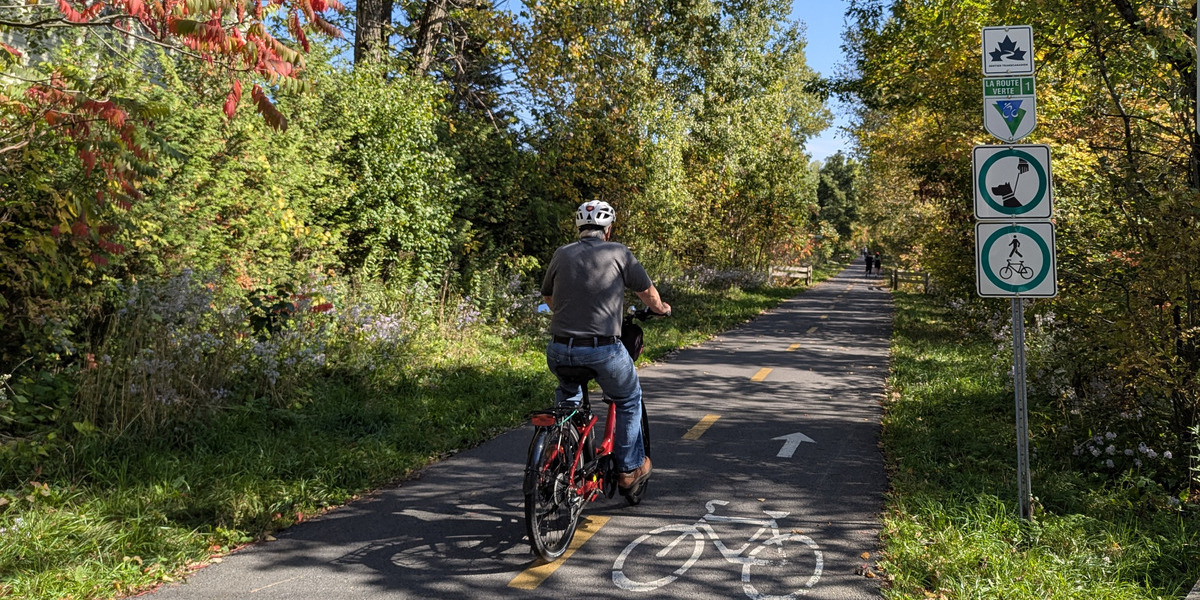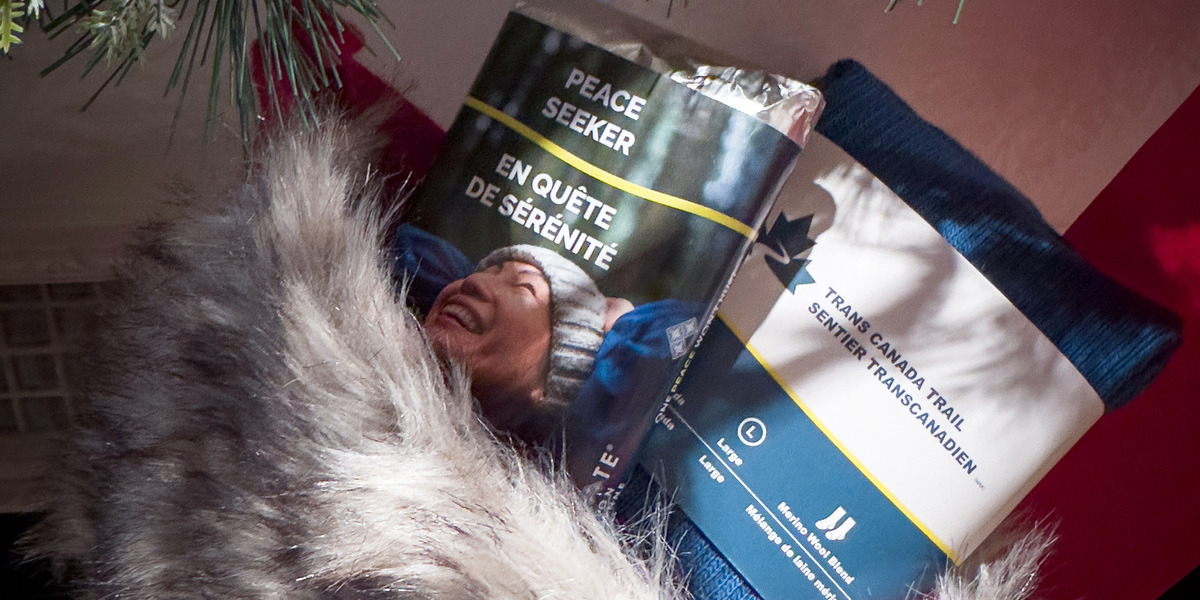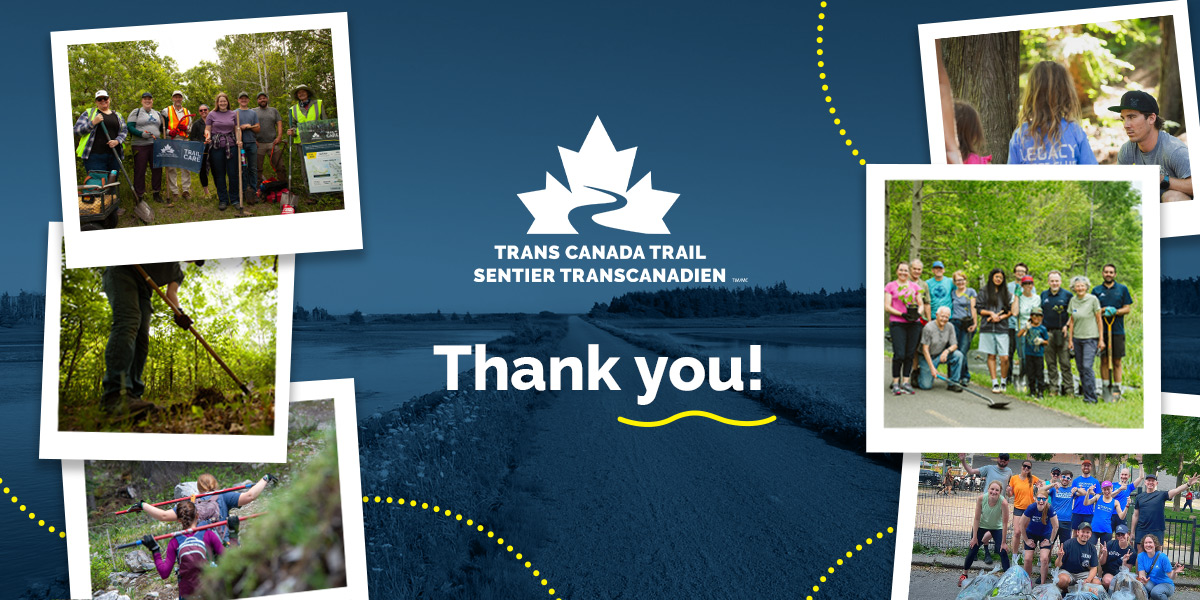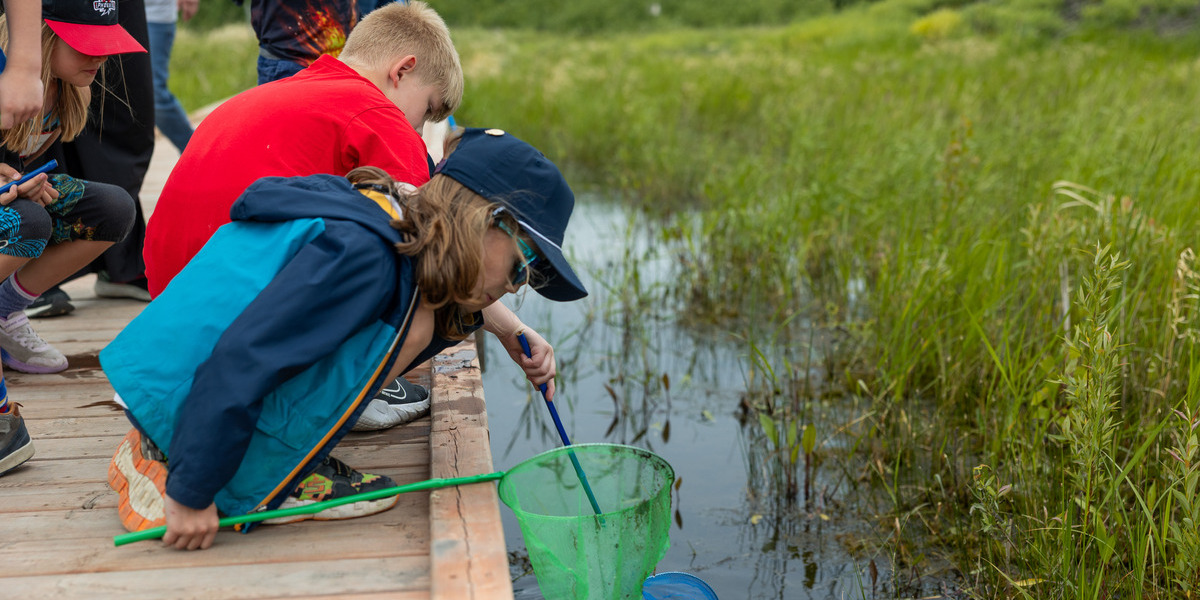Tree-Planting Initiatives and Conservation Work on the Trans Canada Trail
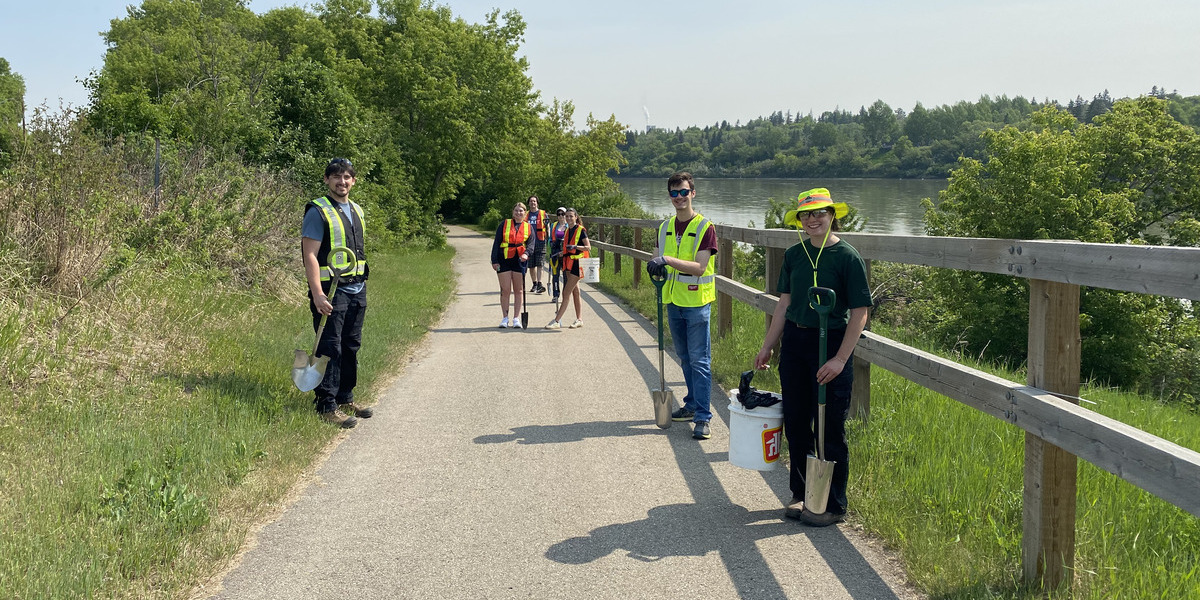
A look back at some exceptional work from the Trail Care Grant program
This past spring, trail groups across Canada came together in their respective communities to plant trees, undertake conservation work and improve wildlife habitat along the Trans Canada Trail, as part of the Trail Care grant program.
We here at Trans Canada Trail were proud to award Trail Care grant funding to 222 groups across Canada – groups who cleaned up their sections of the trail, planted trees, held community events and celebrations, and much more. Below, we’re taking a look at some of the exceptional groups and volunteers who undertook tree-planting initiatives, conservation work, Trail maintenance and enhancement, and community outreach – all in the service of helping the Trans Canada Trail remain accessible to people across Canada.
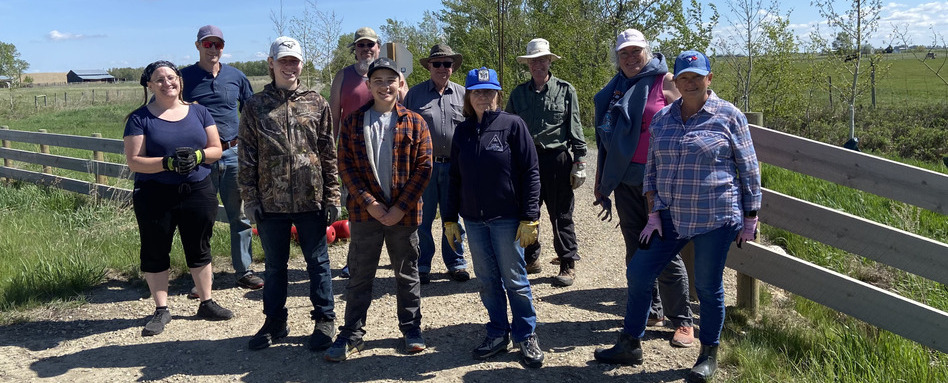
Photo credit: Meadowlark Trail Society
Greening the Trail and meeting new friends
The Meadowlark Trail Society in Alberta used Trail Care funds to care for their trees along the Trail. “We caged, soiled and mulched 40 to 60 trees so they will hold water longer and protect the trunks from deer rubbing on them and keeping away beavers,” says Grace Martin with the trail society. The event was advertised on social media and some new people attended to help with greening the trail.
In Northern Alberta, staff from Sturgeon County reached out to a post-secondary institution to engage students interested in arboriculture and forestry, environmental studies and related fields. They set up a volunteer station along the Athabasca Landing Trail for people to gather, enjoy snacks and drinks, and connect with others.
They also planted 200 trees from 5 different tree species! “In addition to reforestation efforts, volunteers collected litter, pruned and weeded picnic areas, and manually removed invasive weeds from a critical zone draining into the North Saskatchewan River. These actions not only improved the beauty and safety of the area but also supported local ecosystems and helped protect our shared outdoor spaces,” explains Angela Veenstra, Manager of Open Space and Agricultural Services from the county.
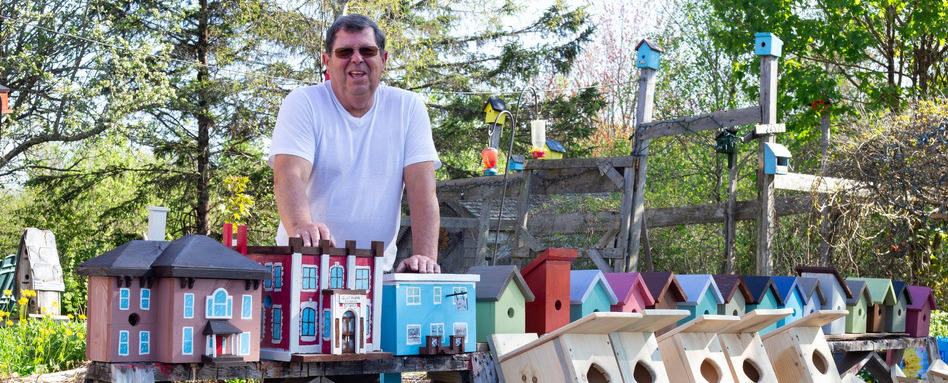
Photo credit: Municipality of Eastern Charlotte
Restoring and enhancing wildlife habitat along the Trail
In Eastern Charlotte, New Brunswick, trail group volunteers installed boxes for birds, ducks and bats along the Coastal Link Trail in the Town of St. George. The “summer homes” were built and painted by local craftsperson Brian Hatt. Volunteers also cleared debris and some downed trees from along the Trail.
Across the country in Calgary, Alberta, the Friends of Fish Creek Provincial Park Society worked to restore a critically important piece of habitat adjacent to the Stream Changes loop bridge of the Trans Canada Trail. “This is a favourite area for many people, and on the day of our event, we welcomed 31 volunteers to the project. Our objectives for this grant focused on creating opportunities for people to meaningfully engage in stewardship activities in Fish Creek Provincial Park, as well as improving the ecosystem health along the Stream Changes Trail by removing invasive plants and planting native species. Both objectives were very much met through this grant and built off of existing projects in the area to provide greater habitat connectivity and improve streambank resilience to erosion and flooding,” says Katrina Terrill, member of the Friends of Fish Creek Provincial Park Society. The group used a technique called solarization to prepare the ground for native species planting. Solarization uses the sun’s heat to remove vegetation and is an effective invasive species removal method.
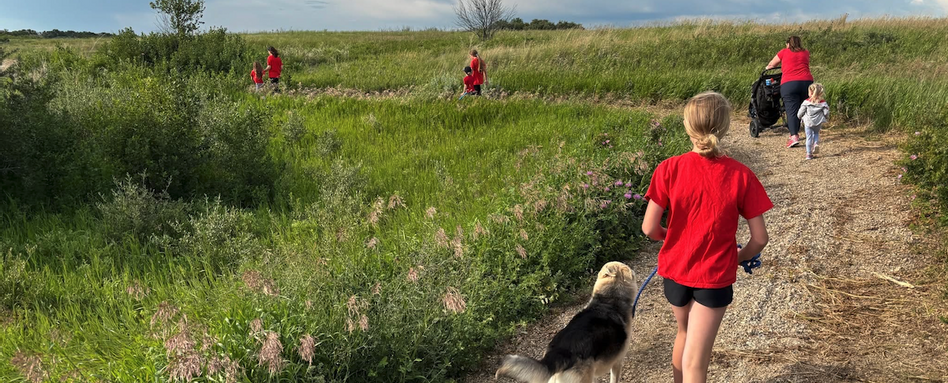
Photo credit: Prairie Sky Trails Association
Maintaining and enhancing the Trail and preparing it for a new season
In the Town of Caledon, Ontario, the Trail Maintenance crew of the Parks Maintenance and Forestry group undertook several tasks related to Trail and biodiversity maintenance. They cleared broken branches and fallen trees, pruned vegetation and picked up trash, removed invasive species, and inspected and reported on infrastructure, noxious weeds, boot brush stations, and turtle conservation areas.
Over in the Prairies, in Sunset Beach, Saskatchewan, two Trail Care events were held: first, an earlier one in May, where organizers planted Poplar and Dogwood species along the south section of the Trail. Later, on June 27, the group organized a community-wide Trail clean-up event. Staff, summer students and community members picked up trash and walked along the Trail over 3.5 kilometres.
“We wanted to say a sincere thank you to Trans Canada Trail for the spring Trail Care grant this year, as well as any other funding programs we have been fortunate enough to receive. These programs, events, and projects have a tremendous impact on our operations, and we are so thankful for the positive and supportive relationship we have formed. The results further our mission, both environmentally and recreationally, and we are excited to see what the future holds,” says Ashley Demers from the Prairie Sky Trails Association.
Exceptional dedication from groups across Canada
Trail groups like those showcased above are only a sampling of the incredible work undertaken by trail groups from across the country as part of our Trail Care grant program in spring 2025. We’re so appreciative of the dedicated volunteers who work to maintain and enhance the Trail, restore and improve wildlife habitat, and much more.
Trail Care is generously supported by Athletic Brewing, Columbia Sportswear Canada and Toyota Canada.
Learn more about Trail Care here.
Primary photo credit: Sturgeon County



